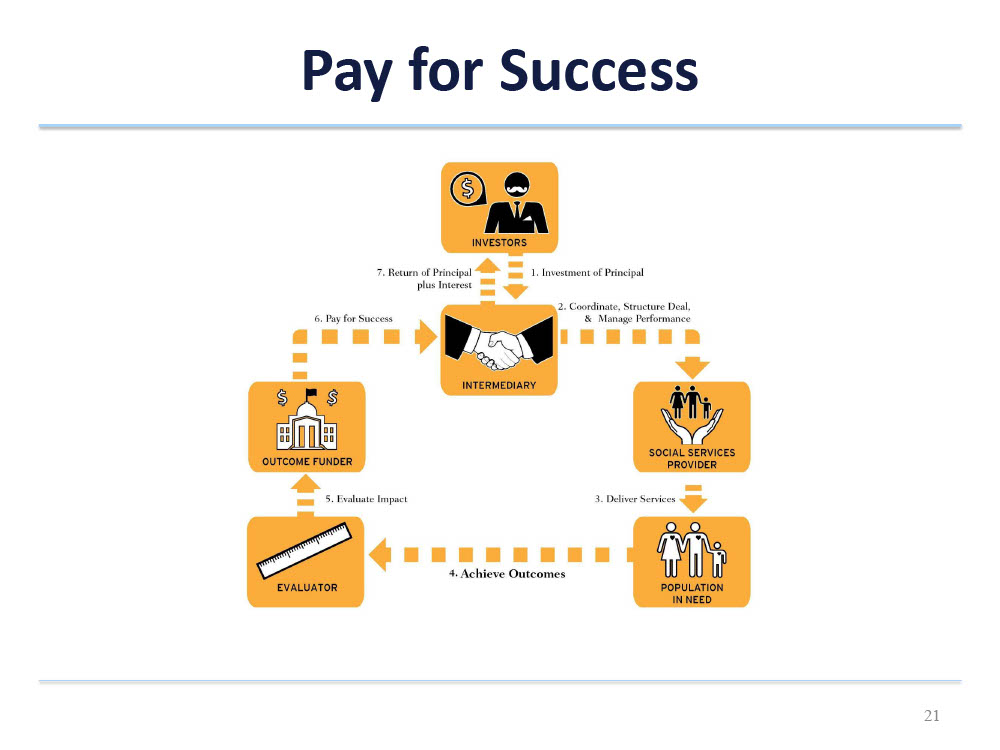On August 31, 2021, we had the privilege of hosting a virtual conversation with Ken Weil of Social Impact Solutions where we learned the story of how the City of Denver used social impact bonds to bring about social change.
What are Social Impact Bonds?
Social Impact Bonds (AKA Pay for Success) are a unique type of performance-based contract where private and/or philanthropic lenders invest funds to accomplish a specific objective and are repaid based on whether the program achieves its goals.
Denver’s SIB for supportive housing
In 2016, the City and County of Denver and eight private investors closed on the city’s first SIB program, an $8.6 million investment to fund supportive housing for 250 people experiencing chronic homelessness who were frequently involved in the criminal justice system. Based on the SIB contract, investors provided funding to support innovative housing first programs run by local nonprofits and would earn a return (paid by City of Denver) if the program met specific goals of housing stability and decreased jail stays that would save the city money. If the program did not meet its outcome goals, the city would not repay the investors.
 Did the Social Impact Bond work?
Did the Social Impact Bond work?
Ken Weil was involved in the creation and implementation of Denver’s SIB and brought this knowledge to bear as he presented his findings to our event attendees. From his presentation, we learned that the Denver SIB effort was indeed successful as the $8.6 million investment netted $9.6 million in savings through the reduction of jail days and housing assistance. When people experiencing homelessness were offered housing, most took advantage of it and stayed for the long term – with 77% of the 250 people remaining in stable housing.
Lessons Learned
Overall, it was refreshing for the attendees to learn about an effort that managed to improve lives and reduce taxpayer costs at the same time. We were able to see how the flow of effort, which included the use of an external evaluator, allowed the necessary checks and balances to be in place to provide the best chance of success. We also learned that social impact bonds are best suited for larger, more entrenched social problems instead of small scale initiatives since the legwork required to set a social impact bonds project into motion is so extensive.

